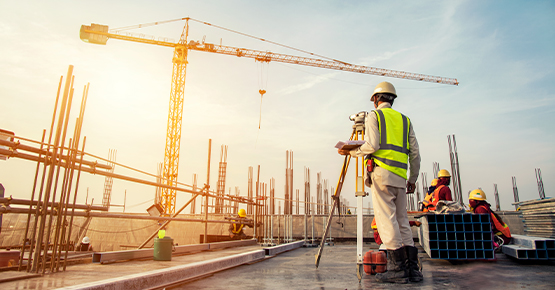Steel: Welcoming Ingenuity and Saving the Environment
In the 2015 Paris Climate Summit, world leaders reached an agreement to adopt innovative sustainability practices to bring the global temperature under control and eliminate the challenges posed by the climate crisis.
It’s no news that some of the vital natural resources of our Earth, like coal and petroleum, are limited in number. This calls for judicious management of these resources and deployment of innovative methodologies to promote eco-friendly production of goods made with these raw materials.
When the concept of ‘sustainability’ first came into existence, it was not conceived in its current magnitude. However, with the clock ticking on climate change and global warming, it has become one of the most critical concepts to bring the much-needed balance between business and environment. In other words, it has brought about a revolution that is vital for our planet's survival.
Steel Industry: Achieving sustainable goals
The steel industry is one of the crucial industries that has been pioneering the sustainability revolution across the world. Unlike many other materials that are either burnt or piled up in landfill after their use, steel is completely recyclable. More importantly, because of its magnetic properties, steel can be easily separated from other materials. Owing to these very characteristics, the production of steel has shifted base from conventional methods to resourceful practices. For instance, energy-efficient ingenious processes like steel recycling have become substantial to steel production, thus breaking away from the conventional norms. Consequently, carbon emissions from the steel industry have decreased considerably.
There is no denying that steel production consumes considerable energy. This may urge many to doubt the ability of steel to lead the sustainability revolution. The truth, however, is clearly the opposite of the ill-narratives. Major steel players in India and abroad, like JSW Steel, are investing in viable environment-friendly steel production technologies and processes. For instance, the production of lighter yet stronger steel is pacing up; this kind of steel enhances fuel efficiency in vehicles, thereby stringently controlling greenhouse gas emissions.

Furthermore, there has been a surge in the production of coated steel products with high corrosion resistance and long service life. This has significantly reduced the need for reconstruction, boosting the sustainability outlook pertaining to steel production.
With the development of resource-efficient machinery that generates less waste as well as harmful pollutants, the adeptness of steel production process has increased manifold. Moreover, owing to reuse and recycling practices, the viability of enhanced end-to-end product lifecycle has increased manifold. Effective implementation and incorporation of advanced technologies in the steel manufacturing process has further augmented steel’s recycle and reuse capabilities.
Steel and its co-products: Affirming the sustainability stance further
The major co-products of the steel industry include slag, dust and sludge, chemicals, emulsions and oils, and process gases. Steel slag has found application in road construction, production of fertilisers and liming materials for agriculture. Process gases have been used to produce heat and electricity besides fuel for various transport facilities including aircraft. According to World Steel Association, as much as 96.3% of raw materials leveraged by the steel industry were transformed into useful materials in 2017.

The steel industry has been able to achieve the much-needed resource efficiency through its many sustainable endeavours. Being the basis of the circular economy that runs the world, the steel industry is helping to save non-renewable natural resources. Moreover, the products made of steel are recyclable and they can be reconstructed easily, giving this material a vital edge over its counterparts.
Steel plays a major role in social and economic development. The best way to make the most of steel’s immense capabilities is by adhering to the innovative sustainability policies. This, in turn, will help achieve the perfect balance between profit and environment.
Information sources: World Steej,Ensia




